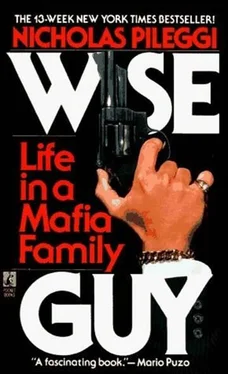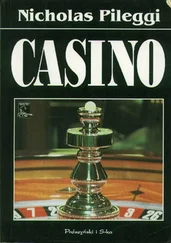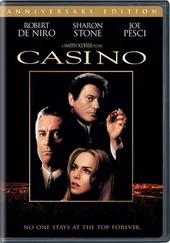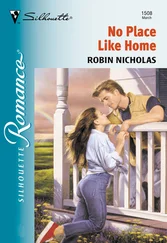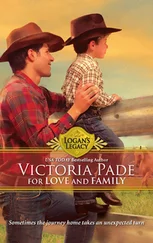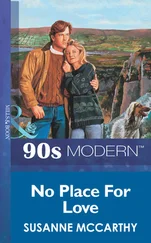"I watched the room to see if anyone made a move. There must have been twenty-five people in the place, but nobody did anything. Later they were all witnesses at the trial, and the bartender, a retired New York cop, got our license plate when we pulled away. It turned out that Casey's cousin had rented the car for us in his own name. I still can't get over that.
"Casey and his cousin were in the front, and Jimmy and I had the guy squeezed between us. The bum was screaming that he wouldn't give up any money. He was yelling that we would have to kill him before he paid. A real tough guy. I whacked him across the face with the gun a few times. I didn't really want to hurt him too bad. After about two blocks he changed his mind. He said he'd pay but he only owed half the money-the rest was owed by a doctor who had been in on the bet. All this negotiating was going on in Spanish. Casey's cousin said he knew the doctor and the guy was probably telling the truth. Casey said he didn't care who paid just as long as they paid him the money they owed.
"I could see that all of these people knew each other very well. I felt like I was in the middle of some hotheaded family feud. Jimmy and I were the strangers. I decided to keep the gun just in case. We drove to a bar owned by Casey's cousin, but by now the guy was bleeding so badly that we had to pull his jacket up over his head when we walked him inside so that he wouldn't attract too much attention. We hustled him right into a small storage room in the rear of the bar, but there were still enough witnesses, including a couple of waitresses, who later testified against us in court. Casey called the doctor.
"It took half the night, but they finally came up with the dough. We cleaned up the guy as best we could and turned him over to his brother. That was it. Case closed. No big deal. Jimmy and I spent the rest of the night and most of the weekend drinking rum and brandy with Casey and his cousin.
"About a month after I got back I was driving down Lefferts Boulevard on my way to Robert's Lounge when I saw eight or twelve cars blocking the street. They were parked all over the sidewalk. I saw Jimmy Santos standing near the corner. 'Get out of here,' he said. 'Put on your radio.' I did what Santos said and I heard that the FBI was 'arresting union officials' and that 'Jimmy Burke and others are being sought.'
"I still didn't know what was going on. I thought it might have had something to do with our having broken up an airport restaurant for Casey the night before. Until I knew more about what was happening I didn't want to go home. I didn't want to go to The Suite. I went to Linda's and watched the television news. That's the first I knew that they were talking about Florida. It was a big thing. They even interrupted shows with news flashes. I couldn't believe it. They said we were an organized-crime, interstate gambling ring. They made it sound like we were part of some big syndicate.
"It didn't make any sense. For some crazy reason the feds had decided to play our little case up big. Jimmy and I met with Casey and all of our lawyers, and none of us could figure the damn thing out until just before the trial. That's when we found out that John Ciaccio, the guy we'd roughed up, had a sister who was a typist for the FBI. Nobody knew that was where she worked. Even her family just thought she had some ordinary job with the government.
"She had apparently gone to see him on the night we beat him up, and she got hysterical. She was afraid her whole family was going to get beaten up and killed. She cried the whole weekend. Monday she went into work and burst into tears in the middle of the Tampa office of the FBI. She was surrounded by agents. Of course they asked her why she was crying and of course she gave it all up. Her brother. His friends. The bars. The bets. The doctor. And, naturally, us. The agents went wild. They had an organized-crime case in their own backyard.
"We were first indicted by the state of Florida for kidnapping and attempted murder, but we beat that case because Casey took the stand and convinced the jury that Ciaccio was a liar. Casey was the only one of us whose record was clean enough so he could take the stand and not get picked apart by the prosecutor in the cross-examination.
"But after we beat the state case, the feds came after us with an extortion indictment. Just before we were going to trial, Casey Rosado, the only one of us who could take the stand, dropped dead one morning while putting on his shoes. He was forty-six. His wife said he was sitting on the edge of the bed and just bent over to tie his laces and he never got up. He collapsed. A heart attack.
"I almost had a heart attack myself when I heard what happened, because I knew with Casey gone our chances for beating the case were gone. And was I right. The trial, which took twelve days, was over on November 3, 1972. It took the jury six hours to bring in a verdict. Guilty. It was unanimous. The judge gave us ten years like he was giving away candy."
A ten-year sentence-it was more time than Karen could conceive of. When she first heard about it, she planned to move in immediately with her parents. Then she planned to kill herself. Then she planned to kill Henry. Then she planned to divorce him. She worried about how she would support herself and the children. She awoke every morning to greater and greater anxiety. And yet she felt compelled to stay with him for the time being-from day to day, she used to tell herself, or until he was taken behind the wall and it was finally over.
But Henry didn't go off to prison right away. In fact, as a result of the appeals his lawyers filed, almost two years elapsed between the time of his sentencing in Tampa and the day he finally surrendered in New York and actually began serving his ten-year term. In those twenty-one months Henry completed the time he owed Nassau County for his misdemeanor plea, opened a restaurant in Queens, and hustled as he had never hustled before. He was practically a one-man crime wave. He borrowed money from loan sharks which he never intended to pay back. He moved truckloads of swag at discount rates (below the usual 30 percent of wholesale), and reorganized his stolen-car gang for the chop shops, looking for spare parts.
He traded stolen and counterfeit credit cards with his old pal from Robert's Lounge, Stacks Edwards. He started buying Sterno in bulk to keep up with the demand for his services as an arsonist. As the prison date drew near, he busted out The Suite, running up huge bills with creditors, selling off liquor and fixtures to other bar owners, even after the IRS had padlocked his door. One night, just before the end, Henry burglarized his own place so thoroughly that when the IRS agents went to auction, they found that every glass, dish, chair, Naugahyde banquette, bar-stool, lighting fixture, and ashtray had disappeared.
"The day before I went in I took Linda to the top of the Empire State Building. It was the first time in my life I had ever gone up there. I told her that I was going away in the morning. She hadn't known exactly when I had to start my sentence. I told her that if I had half a million dollars I'd take her away with me to Brazil in a minute, but I didn't have half a million, and, anyway, I was a bum. I said that it was better if she went her own way. I told her it was time for her to move on. Don't waste any more time with me. It was the end. I kissed her goodbye. We were both crying, and I watched her go down in the elevator."
Henry had been preparing for prison for almost two years. He was going to make his stay as soft as possible. After all, he had been hearing about prisons all his life, and now he sought out the experts. Mob lawyers, for instance, often employ ex-cons as paralegals, and many of these ex-jailhouse lawyers are encyclopedic on the subject of prison and the latest wrinkles in the Bureau of Prisons' rules and regulations. Henry found that of all the maximum-security prisons to which he could be sent, Lewisburg Federal Penitentiary in Lewisburg, Pennsylvania, was probably the best. It was close to New York, and that would make it easier for Karen, lawyers, and friends to visit. It had enough corrupt guards and key officials to make his stay reasonably bearable. And Lewisburg had a large population of organized-crime members inside at the time, including Paul Vario, who was doing two and a half years for income tax evasion, and Johnny Dio, who had been given a long stretch for the acid blinding of newspaper columnist Victor Riesel. In order to get to Lewisburg himself Henry paid an assignment officer at the West Street jail two hundred dollars.
Читать дальше
